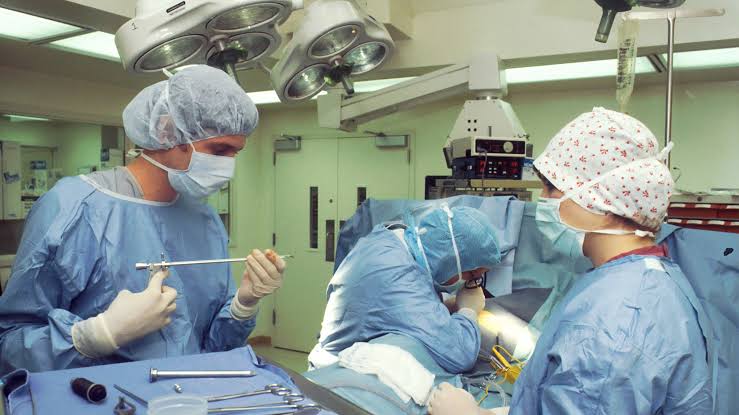
Discover the top surgical tech jobs and employers who are hiring. Find your next surgical technologist career path today!
Surgical technology is a quickly growing field. As medical procedures are becoming increasingly sophisticated and the need for experienced operating room staff grows, surgical tech positions are in great demand throughout hospitals, specialty clinics, and outpatient facilities for Surgical Tech Jobs. Whether you’re starting your career or seeking your next role, this guide details nine in-demand surgical tech positions and the types of employers currently looking for themhttps://bestworldjob.com .

1. Operating Room Specialist – operating room specialist careers
A hospital Operating Room (OR) Specialist is a key member of the surgical team. Tasks involve setting up and sterilizing the operating room, organizing surgical instruments, and supporting surgeons during the procedure. OR specialists are trained to create a sterile environment, anticipate the surgical team’s needs, and provide patient safety throughout the procedure for Surgical Tech Jobs.
Who’s hiring OR specialists:
Hospitals, trauma centers, and operating room surgical clinics employ OR specialists as regular vacancies. They are frequently found in public and private hospitals with heavy surgical volumes. These roles are available in large urban hospitals, as well as military and teaching hospitals Surgical Tech Jobs.

2. Surgical Assistant – surgical assistant jobs
Surgical Assistants assist surgeons during procedures, offering hands-on assistance. Their responsibilities include holding retractors, suturing wounds, and managing bleeding. According to training and certification, certain surgical assistants may function as first assistants in surgery, carrying greater responsibility and expertise Surgical Tech Jobs.
Who’s hiring surgical assistants:
Surgical assistants work in major hospitals, surgical centers, and specialty clinics. They are particularly prevalent in orthopedic, cardiovascular, and general surgery units.
3. Surgical Medical Assistant – surgical medical assistant jobs

Medical Assistants specializing in surgical departments assist with preparing patients for surgery, assist with minor procedures, and process post-operative paperwork. Although they Surgical Tech Jobs will not accompany the patient into the operating room for serious procedures, they collaborate with the surgical team to provide seamless pre- and post-operative care.
Who’s hiring medical assistants:
Outpatient surgery facilities, day hospitals, and private practices with surgical services commonly employ medical assistants with surgical proficiency. Dermatology, ophthalmology, and plastic surgery clinics also need this assistance Surgical Tech Jobs.
4. Senior Surgical Technologist – best surgical technologist jobs
A Surgical Technologist is tasked with preparing the operating room, assembling surgical instruments, and assisting directly in the operating room under the surgeon’s supervision. They prepare and arrange all equipment in a sterile manner, monitor the surgical area, and assist with patient preparation and post-operative clean-up Surgical Tech Jobs.
Who’s hiring surgical technologists:
This is among the most prevalent surgical tech careers. General hospitals, specialty surgery departments, and teaching medical centers frequently employ certified surgical technologists. Private hospitals and community surgical centers also provide stable opportunities in this position.
5. Surgical Technician – surgical technician careers
Most commonly referred to interchangeably with surgical technologist, a Surgical Technician is primarily concerned with the technical and sterile field aspects while conducting surgery. Although the terminology may differ geographically, surgical technicians are equally Surgical Tech Jobs responsible for prepping instruments, assisting in surgery, and maintaining sterile conditions.
Who’s hiring surgical technicians:
Hospitals, ambulatory surgical facilities, and emergency surgery hospitals employ surgical technicians regularly. Similar jobs also exist in operating suites of maternity, orthopedic, and general surgery departments Surgical Tech Jobs.

6. Travel Surgical Technician – travel surgical technician employment
A Travel Surgical Technician accepts short-term contracts in various locations, often to cover staffing gaps or seasonal needs. These jobs provide flexibility, the ability to accumulate diverse experience, and typically offer higher compensation Surgical Tech Jobs.
Who’s hiring travel surgical techs:
Staffing agencies, contract healthcare companies, and national hospital networks offer travel surgical tech positions. These are usually based on six- to thirteen-week contracts and are ideal for experienced professionals seeking variety and independence in their work.
7. OB Surgical Technologist – OB surgical technologist jobs
OB Surgical Technologists work in labor and delivery departments, assisting with C-sections and other gynecological surgeries. They set up the sterile field, support obstetricians during procedures, and ensure the surgical suite is properly prepared for maternal care.
Who’s hiring OB surgical technologists:
Maternity hospitals, women’s health centers, and labor & delivery units in general hospitals frequently recruit OB surgical techs. These roles require comfort working in high-pressure, fast-paced environments and expertise in obstetric-specific tools Surgical Tech Jobs.
8. Cardiovascular Surgical Technologist – cardiovascular surgical technologist jobs
Cardiovascular Surgical Technologists specialize in supporting heart and vascular surgeries. They prepare and manage surgical instruments designed for open-heart and vascular operations. Due to the precision and complexity of cardiovascular procedures, this role demands additional training and specialization Surgical Tech Jobs.
Who’s hiring cardiovascular surgical technologists:
Cardiac care centers, heart institutes, and specialized surgical hospitals employ cardiovascular surgical techs. These professionals are essential for procedures like bypass surgery, valve replacement, and vascular repairs Surgical Tech Jobs.
9. Orthopedic Surgical Technologist – orthopedic surgical technologist jobs
Orthopedic Surgical Technologists assist with surgeries involving bones and joints, including hip and knee replacements, spinal operations, and trauma repairs. They must be skilled in orthopedic instruments, implants, and patient positioning for complex musculoskeletal procedures Surgical Tech Jobs.
Who’s hiring orthopedic surgical technologists:
Orthopedic hospitals, trauma centers, and sports medicine clinics frequently hire orthopedic surgical techs. Due to the physical demands of orthopedic surgeries, this role requires stamina, attention to detail, and a strong understanding of orthopedic tools and procedures Surgical Tech Jobs.

Which Companies Are Hiring Surgical Techs on Handshake
Handshake is a career site frequently used by students and recent graduates to discover early career opportunities. Healthcare organizations regularly post surgical tech job openings and internships on the platform. Hospital systems, outpatient surgery clinics, and specialty networks actively recruit through Handshake Surgical Tech Jobs intelycare.com.
To improve your chances, complete your Handshake profile, upload a tailored resume, and apply for roles that match your training and interests. Engaging directly with recruiters through the platform can also increase your visibility.
Entry Paths, Career Growth, and Certification
Most surgical tech positions require a diploma, certificate, or associate degree in surgical technology or a related field. Some roles—like surgical assistants or cardiovascular technologists—may require additional training or on-the-job experience.
An alternative entry point is working as a Sterile Processing Technician, where responsibilities include cleaning and sterilizing surgical instruments. With further training, this role can lead to a career as a surgical technologist.
The career outlook for surgical techs is stable and growing, particularly in areas such as general surgery, obstetrics, orthopedics, and cardiovascular care. Over time, surgical technologists can advance into leadership positions, become operating room managers, educators, or transition into medical device and surgical equipment roles.
Maintaining professional certification often involves completing continuing education. Many employers support ongoing training through internal development programs or sponsored education benefits.
Final Thoughts
Surgical technology offers a wide range of rewarding and specialized career paths. Whether you’re just starting out or looking to transition into a new specialty, there are many options available—from standard operating room roles to high-demand areas like orthopedics, OB-GYN, or cardiovascular surgery.
Consider your personal interests and long-term goals when choosing a surgical tech pathway. Pursue the proper certification, gain hands-on experience, and keep up with the latest best practices in the field. Surgical techs are crucial to the success of modern surgical teams, and the demand for skilled professionals in this field continues to rise.
If you’d like help building your resume, choosing a training program, or applying to surgical tech jobs, feel free to reach out Certainly! Here’s a Frequently Asked Questions (FAQs) section tailored for the Surgical Technician Job Description and Top Skills guide. You can place this at the end of your blog post, on a careers page, or under a job listing to help clarify common questions from job seekers or employers.
Frequently Asked Questions (FAQs) About Surgical Technician Jobs
1. What is the difference between a surgical technician and a surgical technologist?
Both terms are often used interchangeably. In most regions, “surgical technician” and “surgical technologist” refer to the same role—assisting in surgical procedures, maintaining sterile environments, and preparing surgical instruments. Some institutions may use “technologist” to indicate a higher level of certification or education.
2. Do surgical techs need to be certified?
While certification is not always legally required, most employers prefer or require certification. The Certified Surgical Technologist (CST) credential is offered by the National Board of Surgical Technology and Surgical Assisting (NBSTSA). Being certified can lead to better job prospects and higher pay.
3. How long does it take to become a surgical technician?
Most surgical tech programs take 12 to 24 months to complete, depending on whether you’re earning a diploma, certificate, or associate degree. Some schools offer accelerated programs.
4. What education do I need to start a surgical tech program?
You typically need a high school diploma or GED to enter a surgical technology program. Prerequisite courses in biology, anatomy, or health sciences may also be required.
5. Where do surgical technicians typically work?
Surgical techs work in a variety of settings, including:
- Hospitals (operating rooms)
- Outpatient surgical centers
- Private practices
- Labor & delivery units
- Specialized surgical clinics (e.g., orthopedic, cardiac, neurology)
6. Is the job physically demanding?
Yes. Surgical techs must stand for long periods, lift surgical equipment, and maintain focus during extended operations. Physical stamina and fine motor skills are essential.
7. Can surgical techs specialize in certain types of surgery?
Absolutely. Many surgical techs specialize in areas like:
- Cardiovascular surgery
- Orthopedic surgery
- Neurosurgery
- Obstetrics (C-sections, labor and delivery)
Specialization may require additional training or experience, but it often leads to higher pay and more career growth.
8. What are typical shift hours for surgical technicians?
Surgical techs may work 8-, 10-, or 12-hour shifts, depending on the facility. Some roles include overnight, weekend, or on-call shifts—especially in hospitals and trauma centers.
9. How much do entry-level surgical techs earn?
Entry-level surgical techs typically earn between $38,000 and $50,000 annually. Wages increase with experience, specialization, and certification.
10. What career advancement opportunities are available for surgical techs?
Surgical technicians can advance to roles such as:
- Surgical first assistant
- Operating room manager
- Medical device sales representative
- Surgical technology instructor
- Sterile processing supervisor
Further education and certifications can open the door to higher-paying, leadership, or teaching roles in the field.
11. Are there jobs for travel surgical technicians?
Yes. Travel surgical techs are in high demand, especially in areas facing staff shortages. These roles offer flexible contracts, housing stipends, and premium pay rates.
12. Is continuing education required for surgical techs?
Yes. To maintain certification, surgical techs often need to complete continuing education units (CEUs). Employers may offer or sponsor training to help surgical techs stay current with surgical methods and technologies